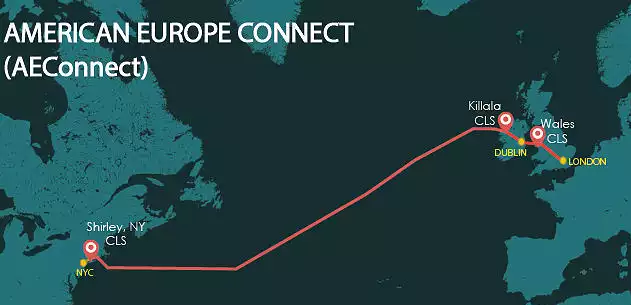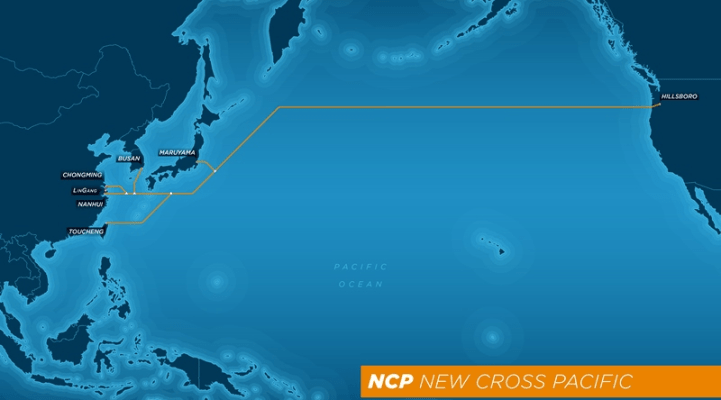Microsoft today announced that it is partnering with a consortium of telecom companies to build a new transpacific undersea cable that will connect a number of points in China, South Korea, Taiwan and Japan with the U.S. West Coast (or beautiful Hillsboro, OR — the home of the Hillsboro Hops — to be precise). Microsoft says the New Cross Pacific (NCP) Cable Network will provide faster connections for its customers and help it compete on cloud cost.
In addition, Microsoft also today announced deals with Hibernia to offer faster connectivity between Canada, Ireland and the U.K., and AcquaComms to use its upcoming AEConnect cable between Shirley, NY and the West Coast of Ireland (with backhaul connections to the U.K.).
The Hibernia Express cable, the first new transatlantic cable in twelve years, will launch in September. It’s partly optimized for very low-latency operations (the promise is under 60 milliseconds between New York and London) and will be able to handle up to 10 Tbps per cable pair once it is fully operational.
Microsoft is the first customer for the AEConnect cable, which will cost about $300 million to build. The cable uses 130 wavelengths x 100 Gbps per fibre pair and will also function as a platform for Microsoft’s network expansion in Europe going forward.

For these two cables, Microsoft specifically notes that its investment is meant to connect its data center infrastructure in North America to Ireland and the U.K. “These cables will help deliver data at higher speeds, with higher capacity and lower latency for our customers across the globe,” Microsoft managing director for network enablement David Crowley writes today.
“As people and organizations expect data and information at their fingertips Microsoft must have an infrastructure that can deliver the cloud services, including Azure, which our customers need to support their global businesses,” Crowley says in today’s announcement.
Without providing any additional details, Crowley also noted that Microsoft has been “significantly investing in subsea and terrestrial dark fiber capacity by engaging in fiber partnerships that span multiple oceans and continents” over the last nine months.
Microsoft isn’t alone in its interest in expanding its global networking infrastructure. Its competitors have made similar investments in their undersea cable infrastructure, too. Google, for example, put $300 million into a new cable system that connects Japan and the U.S. after previously making similar deals in 2008 and 2011.
